Copyright 2009 by Corwin Press
First Skyhorse Publishing edition 2015.
All rights reserved. No part of this book may be reproduced in any manner without the express written consent of the publisher, except in the case of brief excerpts in critical reviews or articles. All inquiries should be addressed to Skyhorse Publishing, 307 West 36th Street, 11th Floor, New York, NY 10018.
Skyhorse Publishing books may be purchased in bulk at special discounts for sales promotion, corporate gifts, fund-raising, or educational purposes. Special editions can also be created to specifications. For details, contact the Special Sales Department, Skyhorse Publishing, 307 West 36th Street, 11th Floor, New York, NY 10018 or .
Skyhorse and Skyhorse Publishing are registered trademarks of Skyhorse Publishing, Inc., a Delaware corporation.
Visit our website at www.skyhorsepublishing.com.
10 9 8 7 6 5 4 3 2 1
Library of Congress Cataloging-in-Publication Data is available on file.
Cover design by Lisa Riley
Print ISBN: 978-1-63450-358-7
Ebook ISBN: 978-1-5107-0123-6
Printed in the United States of America
Contents
History of Science Topics
Acknowledgments
T he authors would like to thank all the students and teachers who contributed the insights and inspirations of their classroom experiences. They would like to express their gratitude to Helen P. and Glenn Taylor for encouraging and facilitating their many and varied endeavors throughout the years at Cal State Fullerton and to Nancy P. Gallavan for her congeniality, camaraderie, and collegiality.
Ellen would like to thank her family, Jeffrey, Meredith, and Cary Kottler. Victoria would like to thank her family, John and Jesse Costa and Rachael Blasko.
Along with the dedicated professionals at Corwin, the contributions of the following reviewers are gratefully acknowledged:
Regina Brinker
Middle School Science Teacher
Christensen Middle School
Livermore, CA
Lisa Edwards, NBCT
Hickory High School
Science Department
Hickory, NC
Darleen Horton
Science Lab Teacher
Chenoweth Elementary
Presidential Awardee Teacher (Science) (K6)
Louisville, KY
Sally Koczan
Science Specialist
Meramec Elementary School
Clayton, MO
Chris S. Sefcheck
AP Biology/Biology Honors
Coronado High School
Henderson, NV
Sara Sefcheck
Science Teacher
Coronado High School
Henderson, NV
Melissa Wikler
Clark County School District
Las Vegas, NV
About the Authors
 Ellen Kottler, EdS, has been a teacher for over thirty years in public and private schools, alternative schools, adult education programs, and universities. She has worked in inner-city schools as well as in suburban and rural settings. She was a curriculum specialist for one of the countrys largest school districts. Ellen is the coauthor of Secrets for Secondary School Teachers: How to Succeed in Your First Year (2004), On Being a Teacher (2005), Secrets for Beginning Elementary School Teachers (2007), Counseling Skills for Teachers (2007), Secrets to Success for Social Studies Teachers (2008), and English Language Learners in Your Classroom: Strategies That Work (2008).
Ellen Kottler, EdS, has been a teacher for over thirty years in public and private schools, alternative schools, adult education programs, and universities. She has worked in inner-city schools as well as in suburban and rural settings. She was a curriculum specialist for one of the countrys largest school districts. Ellen is the coauthor of Secrets for Secondary School Teachers: How to Succeed in Your First Year (2004), On Being a Teacher (2005), Secrets for Beginning Elementary School Teachers (2007), Counseling Skills for Teachers (2007), Secrets to Success for Social Studies Teachers (2008), and English Language Learners in Your Classroom: Strategies That Work (2008).
Ellen is a Lecturer in the Secondary Education Department at California State University, Fullerton.
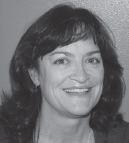 Victoria Costa, PhD, is the Director of Science Education at California State University, Fullerton. She has taught chemistry, biology, physics, mathematics, and education at the secondary, community college, and university levels. Her research focuses on the recruitment, development, and support of secondary science teachers and the preparation of all teachers to support twenty-first-century learning in technology-rich environments. She is a consultant for IntelEducation and The JASON Project, and has been the principal investigator for several million-dollar grants to support math and science education, including the Professional Development Resources Online for Mathematics (PD-ROM), Collaborating for Excellence in Middle School Science (CEMSS), and the Math and Science Teachers Project (MAST). She has published in highly respected journals, including the Journal of Curriculum Studies, Journal of College Science Teaching , Science Education , International Journal of Science Education , and Journal of Research in Science Teachin g.
Victoria Costa, PhD, is the Director of Science Education at California State University, Fullerton. She has taught chemistry, biology, physics, mathematics, and education at the secondary, community college, and university levels. Her research focuses on the recruitment, development, and support of secondary science teachers and the preparation of all teachers to support twenty-first-century learning in technology-rich environments. She is a consultant for IntelEducation and The JASON Project, and has been the principal investigator for several million-dollar grants to support math and science education, including the Professional Development Resources Online for Mathematics (PD-ROM), Collaborating for Excellence in Middle School Science (CEMSS), and the Math and Science Teachers Project (MAST). She has published in highly respected journals, including the Journal of Curriculum Studies, Journal of College Science Teaching , Science Education , International Journal of Science Education , and Journal of Research in Science Teachin g.
Introduction
T eaching sciencewhat an awesome responsibility! How do teachers develop relationships with their students and cover the entire required curriculum? Where do they find all the materials and resources to engage students in inquiry learning? What do they do to create communities of learners who become active problem solvers? These are just a few of the many questions most science teachers ask themselves every day.
We have written this book to provide practical ideas, strategies, and insights to help you answer these questions. Secrets to Success for Science Teachers includes essential topics that teachers face, from setting up a science classroom and establishing routines to planning meaningful instruction and assessment, building literacy, integrating technology, using a plethora of science resources, establishing relationships with families, and networking with colleagues. With these suggestions, you will be on your way to success in creating an academic environment of collaboration and creativity where differences are honored in a community of learners.
AUDIENCE
We have written this book for all educators who specialize in science education. You include middle-level teachers found in elementary schools and secondary teachers in middle schools or junior high schools and high schools. You teach lessons or courses in general science, or your courses address life science, Earth science, physical science, biology, chemistry, physics, or environmental science exclusively.
This book is also valuable for experienced science teachers, as well as department chairsespecially those teachers seeking guidance and support advancing their professional growth and development. Additionally, we have written this book for preservice teachers enrolled in science methods courses as part of their teacher education programs at universities, colleges, community colleges, or nontraditional licensure programs sponsored by state and county departments of education and school districts.
The concepts and practices presented in this book will benefit every methods instructor in preparing new teachers and help every master teacher, teacher educator, and administrator when mentoring or supervising science teachers.
OVERVIEW
This book provides a detailed overview of effective science education within the diverse context of todays schools and classrooms. Based on research in the field, it contains a multitude of pragmatic guidelines, checklists and resources, and secrets to ensure your immediate success.
begins with a tour of your school and classroom as you orient yourself for your teaching assignment, setting up your room, establishing policies and procedures, and creating a shared learning environment.
helps you understand how science standards, state content standards, and district expectations work together to frame your district curriculum.
focuses on teaching science through an inquiry method that utilizes the scientific method and investigation.

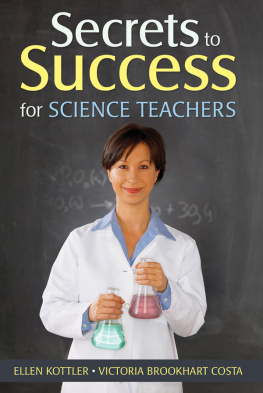
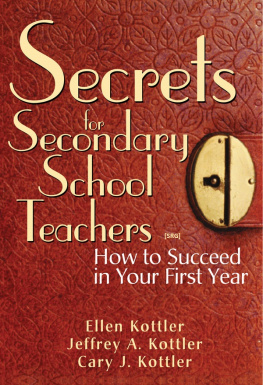
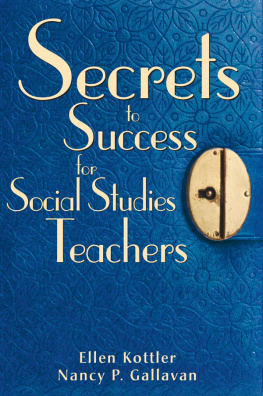
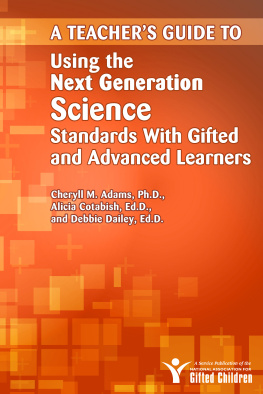
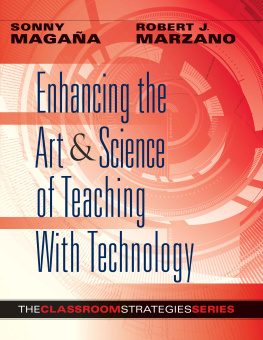
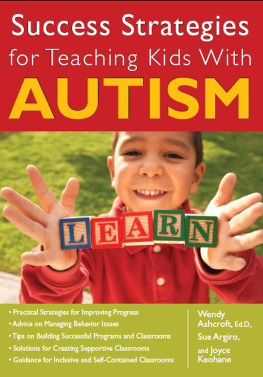
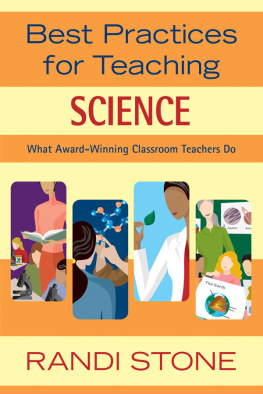

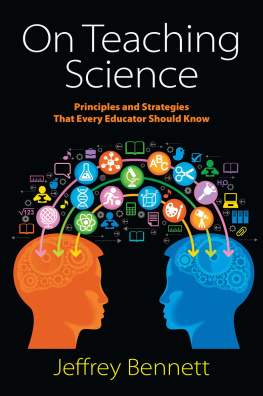
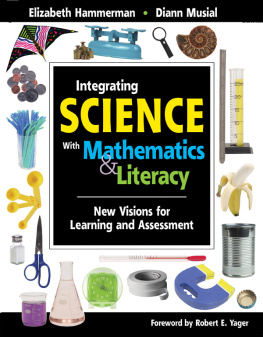
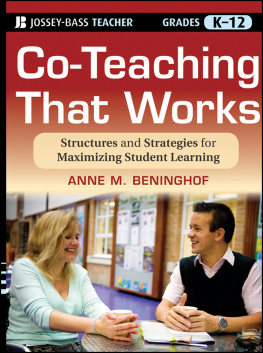

 Ellen Kottler, EdS, has been a teacher for over thirty years in public and private schools, alternative schools, adult education programs, and universities. She has worked in inner-city schools as well as in suburban and rural settings. She was a curriculum specialist for one of the countrys largest school districts. Ellen is the coauthor of Secrets for Secondary School Teachers: How to Succeed in Your First Year (2004), On Being a Teacher (2005), Secrets for Beginning Elementary School Teachers (2007), Counseling Skills for Teachers (2007), Secrets to Success for Social Studies Teachers (2008), and English Language Learners in Your Classroom: Strategies That Work (2008).
Ellen Kottler, EdS, has been a teacher for over thirty years in public and private schools, alternative schools, adult education programs, and universities. She has worked in inner-city schools as well as in suburban and rural settings. She was a curriculum specialist for one of the countrys largest school districts. Ellen is the coauthor of Secrets for Secondary School Teachers: How to Succeed in Your First Year (2004), On Being a Teacher (2005), Secrets for Beginning Elementary School Teachers (2007), Counseling Skills for Teachers (2007), Secrets to Success for Social Studies Teachers (2008), and English Language Learners in Your Classroom: Strategies That Work (2008). Victoria Costa, PhD, is the Director of Science Education at California State University, Fullerton. She has taught chemistry, biology, physics, mathematics, and education at the secondary, community college, and university levels. Her research focuses on the recruitment, development, and support of secondary science teachers and the preparation of all teachers to support twenty-first-century learning in technology-rich environments. She is a consultant for IntelEducation and The JASON Project, and has been the principal investigator for several million-dollar grants to support math and science education, including the Professional Development Resources Online for Mathematics (PD-ROM), Collaborating for Excellence in Middle School Science (CEMSS), and the Math and Science Teachers Project (MAST). She has published in highly respected journals, including the Journal of Curriculum Studies, Journal of College Science Teaching , Science Education , International Journal of Science Education , and Journal of Research in Science Teachin g.
Victoria Costa, PhD, is the Director of Science Education at California State University, Fullerton. She has taught chemistry, biology, physics, mathematics, and education at the secondary, community college, and university levels. Her research focuses on the recruitment, development, and support of secondary science teachers and the preparation of all teachers to support twenty-first-century learning in technology-rich environments. She is a consultant for IntelEducation and The JASON Project, and has been the principal investigator for several million-dollar grants to support math and science education, including the Professional Development Resources Online for Mathematics (PD-ROM), Collaborating for Excellence in Middle School Science (CEMSS), and the Math and Science Teachers Project (MAST). She has published in highly respected journals, including the Journal of Curriculum Studies, Journal of College Science Teaching , Science Education , International Journal of Science Education , and Journal of Research in Science Teachin g.